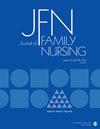“失败的”匹配,孩子被带走,以及被打乱的安置:LGBTQ养父母在家庭建设过程中的毁灭性和无形损失
IF 2.6
3区 医学
Q1 FAMILY STUDIES
引用次数: 2
摘要
生殖损失,包括流产和非妊娠损失,如收养损失,很少被视为家庭建设之旅的一部分。这种损失往往在LGBTQ人群中更为隐蔽。目前的研究调查了80名LGBTQ人士的经历,他们经历了与收养相关的损失(即收养匹配失败、儿童迁移、儿童安置中断),并关注这些损失对他们的影响以及是什么使他们能够继续前进。寻求私人家庭收养的参与者在孩子出生前(n=21)和/或出生后(n=24)都经历了失败的匹配(即亲生父母决定为人父母或选择另一个家庭)。寻求公开家庭收养的参与者经历了与亲生父母(n=14)和其他亲生亲属(n=18)团聚的儿童迁移,以及父母(n=10)和子女(n=7)发起的安置中断。失败的比赛、孩子被转移和安置被打乱通常被视为“毁灭性”和无形的损失。他们之后通常会有一段时间的悲伤,有时会促使参与者调整比赛或安排的类型(例如,以降低未来类似损失的可能性)。伴侣和那些在孩子被照顾后经历过类似损失、知识或希望的人的支持有助于摆脱收养损失,并最终被安置在他们最终合法收养的孩子身边。本文章由计算机程序翻译,如有差异,请以英文原文为准。
“Failed” Matches, Child Removals, and Disrupted Placements: Devastating and Invisible Losses During the Family-Building Journey for LGBTQ Adoptive Parents
Reproductive loss, which includes miscarriage and nongestational loss, such as adoption loss, is rarely recognized as part of the family-building journey. Such loss tends to be even more invisible among LGBTQ individuals. The current study examines the experiences of 80 LGBTQ individuals who experienced adoption-related losses (i.e., failed adoption matches, child removals, disrupted child placements), with attention to how these losses impacted them and what enabled them to move forward. Participants who pursued private domestic adoption experienced failed matches (i.e., birth parents deciding to parent or choosing another family) both before (n = 21) and/or after (n = 24) a child was born. Participants who pursued public domestic adoption experienced child removals involving reunification with birth parents (n = 14) and other birth relatives (n = 18), as well as disrupted placements initiated by parents (n = 10) and children (n = 7). Failed matches, child removals, and disrupted placements were typically experienced as “crushing” and invisible losses. They were often followed by a period of grieving, and sometimes prompted adjustments to the type of matches or placements participants would consider (e.g., to mitigate the likelihood of future similar losses). Moving forward from adoption losses was facilitated by support from partners and those who experienced similar losses, knowledge or hope regarding the children once in their care, and finally being placed with the child(ren) whom they ultimately legally adopted.
求助全文
通过发布文献求助,成功后即可免费获取论文全文。
去求助
来源期刊
CiteScore
4.00
自引率
9.70%
发文量
40
审稿时长
>12 weeks
期刊介绍:
Journal of Family Nursing (JFN) is a peer-reviewed, quarterly journal of nursing research, practice, education, and policy issues, as well as empirical and theoretical analyses on the subject of family health. Its interdisciplinary, international, and collaborative perspectives examine cultural diversity and families across the life cycle. This journal is a member of the Committee on Publication Ethics (COPE).

 求助内容:
求助内容: 应助结果提醒方式:
应助结果提醒方式:


